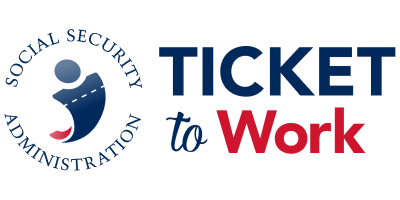 Is what you post on social media going to matter to a potential employer? Is there a chance employers take a look before they make a hiring decision? The answer to both questions could be “yes.”
Is what you post on social media going to matter to a potential employer? Is there a chance employers take a look before they make a hiring decision? The answer to both questions could be “yes.”
It’s important to remember that your social media pages represent you, and if a potential employer chooses to look, it may affect their decision to hire you. Keeping a professional, favorable social media presence is your best bet. Here are some tips to keep it professional on social media.
1. Have a Professional Looking Profile Picture
When people search your name on the internet, it’s possible that your profile pictures from various social media platforms will appear in the search results. Even if your page is private or hidden on some platforms, it’s possible for the profile picture to appear. You don’t have to have a professional photographer take the photo but choose pictures that are professional looking with a full view of your face. At least consider making this change during your job search. Profile pictures should be simple, include just head and shoulders and use natural light. Dress appropriately to show yourself in the best light. A good question to ask yourself before posting is, “Would I want my future boss to see this picture?” Make it a favorable one!
2. Interact and Engage Professionally
It is tempting to comment harshly on posts that make you angry or upset. If you see a post that you strongly disagree with on a controversial topic, pause before you post. Be careful with responding emotionally to something you see online because your response can be captured and shared. An inappropriate response with harsh language can negatively affect your professional reputation. Also, when you comment and share online, don’t forget to thoughtfully engage in topics that are in your industry, especially on professional sites such as LinkedIn. This shows that you’re active in your field and can engage in professional conversations anywhere online.
3. Don't Complain About Former Employers
When you leave a job, you may be tempted to vent, and post the jokes you’ve stored up about your previous boss or company. Imagine that a hiring manager reviews your social media and sees the choice words you posted. This could make a potential new boss concerned that if problems arise, they’ll be the target of your venting in the future. Social media is a public forum and isn’t the place to insult colleagues or companies.
4. Keep Profiles Current
Some social media profiles such as LinkedIn are more focused on work experience, education and sharing work accomplishments. Keep these profiles up to date. If you have a new position, share that on your page. If you earned a new certificate, completed a course or won an award that is relevant to your career, post those as well. Consider sharing these timely updates on all your social media pages, not just LinkedIn. This shows that you are consistently professional on all platforms, which is great for hiring managers to see.
5. Share Your Network Activities
Social media is not just designed to share your social activities like vacations or nights out with friends. You can also share some of your networking activities as well. If you have attended any industry chamber events, career fairs or meetings with mentors, share those on your social media pages. Post your volunteer activities in the community and include what you learned about the host organization. These posts can show that you have a good work-life balance, and that you are active in your community.
Your social media platforms don’t have to take away from your professionalism, they can add to it! Take the time to review your social media profiles to represent yourself in the best way to future employers and professional contacts.
How Can Ticket to Work Help?
Social Security’s Ticket to Work (Ticket) Program supports career development for people ages 18 through 64 who receive Social Security disability benefits (SSDI/SSI) and want to work. Through this free and voluntary program, eligible participants can work with service providers to receive the service and supports they need to find and maintain employment as they move toward financial independence through work.
Connect with a Ticket Program service provider such as an Employment Network (EN) for career counseling that can include advice on your online profiles. Find an EN today!
Learn More
To learn more about the Ticket Program, visit choosework.ssa.gov or call the Ticket to Work Help Line at 1-866-968-7842. For callers who are deaf, hard of hearing or have a speech disability, call our TTY at 1-866-833-2967 (TTY). Hours are Monday through Friday, 8 a.m. to 8 p.m. ET. You can also learn more by registering for a free, online Work Incentives Seminar Event webinar. Or text TICKET to 1-571-489-5292 to receive Ticket Program texts. Standard messaging rates may apply, and you can opt out at any time.



 Have you ever thought about working for the federal government? Students, now may be your chance. Learn more about the
Have you ever thought about working for the federal government? Students, now may be your chance. Learn more about the 


